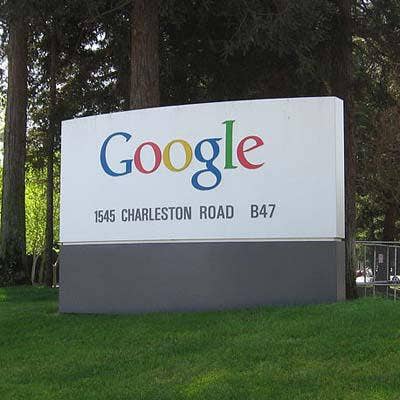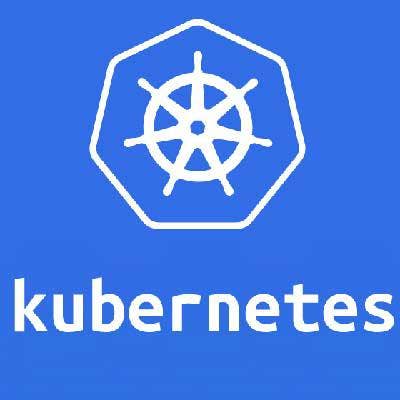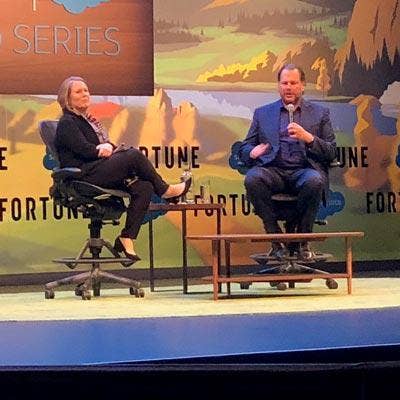The 10 Biggest Google Stories Of 2017

Searching For Cloud Glory
Google ushered in 2017 ready to throttle an enterprise cloud business that had struggled in previous years to meet the large expectations placed upon it. However, with Senior Vice President Diane Greene at the helm, Google Cloud leaders believed the right combination of technology and leadership was finally in place to successfully pitch Google Cloud Platform to the traditional business customers flocking to hyper-scale competitors.
In the first months of the new year, the team recruited by Greene implemented changes in messaging, channel program structure, sales organization, and product portfolio, all the while leveraging Google's expertise in containers, artificial intelligence, analytics and security.
At least to some degree, those efforts bore fruit -- Google Cloud Platform enjoyed impressive growth in 2017. While Google does not break out cloud financials directly, industry researchers estimated the business roughly doubled year-over-year in each fiscal quarter.
But in a red-hot cloud market, consistent three-digit growth wasn't enough to substantially close the gap with Microsoft Azure, or challenge Amazon Web Services' dominant position in the market. As the third-quarter ended in October, GCP looked to hold roughly six percent market share.
Partnerships with other name-brand vendors forged in the second-half of the year, however, might propel Google even further in 2018.
Get more of CRN's 2017 tech year in review.

10. PKS Partnership
Google invented Kubernetes, which in 2017 became something close to an industry standard for orchestrating clusters of Docker containers.
In March, Google teamed with Pivotal for a new open source Kubernetes management project called Kubo. That collaborative effort later resulted in Pivotal Container Service (PKS), a product born from a groundbreaking partnership between three heavyweight software companies.
Google lent its Kubernetes expertise to Pivotal and VMware in developing the service for deploying and managing containerized workloads at enterprise scale on both private and public clouds.

9. Enterprise Chrome
Looking to penetrate deeper into the enterprise, in August Google introduced a business-ready version of its popular Chrome operating system.
Chrome Enterprise added new features to Chrome OS, including enterprise app storefronts, more security controls, and round-the-clock support. It also integrated with popular endpoint and identity management solutions from VMware and Microsoft.
Partners said the new operating system could prove a potent move against Microsoft's dominant position in the business PC market.

8. Google Buys Bitium
Google acquired identity management startup Bitium in September, a purchase partners praised for introducing a layer of native security tooling to Google Cloud Platform.
Bitium's products look to simplify securing cloud-based apps, both for administrators who need to manage accounts, and for employees accessing business applications like Google G Suite, as well as Microsoft Office 365, applications hosted on Amazon Web Services, and other Software-as-a-Service solutions.
The Santa Monica, Calif.-based startup's technology will bulk up Google's Cloud Identity solution by delivering access management and single-sign-on capabilities for cloud and mobile environments. However, Google said the acquisition would not stop it from working with other identity management partners.

7. Cisco Strategy
Google teamed with the world's leading networking powerhouse in October to deliver more-seamless hybrid cloud capabilities.
The wide-ranging deal looks to provide Cisco with a seamless bridge to Google's next-generation public cloud technologies, such as Kubernetes container orchestration services.
For Google, the hybrid cloud offering that should become available in the second half of 2018 opens the door for businesses to adopt more of its cloud services by leveraging Cisco's on-premises networking, hyper-converged, and security offerings.

6. More AI
Google's I/O developer conference in May shined a spotlight on artificial intelligence as the modality that will power the next generation of the company's consumer products.
Because innovations Google develops for consumers usually find their way into the enterprise, partners told CRN the products showcased at I/O across various platforms – Android, Chrome, YouTube, Google Home, virtual reality headsets – teased business-grade capabilities they will be able to introduce to their practices down the road.
Artificial intelligence remained the main talking point throughout the year for Google CEO Sundar Pichai, who in Alphabet's Q3 earnings call said Google doesn't consider machine learning a premium capability, but rather core to everything the company does and a fundamental differentiator in the market.
Google will continue to "drive that advantage," Pichai said.

5. Salesforce Preferred
Salesforce announced at its Dreamforce conference in November that it had selected Google as a "preferred" cloud infrastructure partner for a coming round of global expansion. While the title was not exclusive (AWS remains a preferred partner), it represented a major customer win for Google Cloud.
Google reciprocated by naming Salesforce its "preferred CRM."
In addition to the platform partnerships, leaders of both companies said Google's G Suite office productivity portfolio would see deeper integration with Salesforce cloud applications, including Sales and Marketing clouds, as will the Google Analytics 360 platform. The two companies had previously done light-touch integrations, but the new partnership will yield entirely co-engineered solutions.
Diane Greene, senior vice president of Google Cloud, later that day sat down to be interviewed on a Dreamforce stage by Salesforce CEO Marc Benioff.

4. Solutions-Oriented Channel
Diane Greene, Google's cloud leader, and Bertrand Yansouni, who had recently been named the company's channel chief, unveiled to partners a new "unified approach" to its channel program at the Google Cloud Next conference in March.
The program was revamped to break down channel silos and reward partners for selling the whole Google Cloud stack. Previously partners and sales agents were aligned by products, not accounts and solutions.
Partners said the new approach better aligned with how enterprise customers actually looked to purchase technology. The program changes illustrated that, after some stumbles, the consumer-tech powerhouse was starting to understand the critical enterprise market.
To further encourage the solutions-focused approach, Google introduced four new specialization credentials, a revamped partner directory, and a new engineering team to advise partners on large engagements.

3. Regulatory Roadblocks
Several months after Google was slapped with a $2.7 billion anti-trust fine by the European Commission over claims of favoring its shopping services in search results, another regulatory headache developed closer to home.
The state of Missouri opened an investigation in November looking into potential violations of consumer protection and anti-trust laws involving manipulation of search results, as well as excessive data collection on users.
’No entity in the history of the world has collected as much information on individual consumers as Google,’ Missouri Attorney General Josh Hawley said in a news conference after serving Google with a subpoena and opening an investigation into the company.
’We should not just accept the word of these corporate giants that they have our best interests at heart," Hawley said.

2. Channel Chief Turnover
Google partners were forced to put up with some channel leadership turmoil in 2017.
Near the end of 2016, Google hired Bertrand Yansouni (pictured), who once worked at VMware under current Google cloud leader Diane Greene, as its global channel chief. Yansouni was charged with implementing changes to encourage partners to pivot from focusing on reselling the G Suite portfolio toward developing practices around infrastructure products competing with AWS and Microsoft Azure.
However, less than a year after Yansouni took the reins of the expanding program, partners were surprised to learn of his imminent departure.
Partners told CRN they had suspected Yansouni, who came to Google from Cloudera, preferred a start-up environment over working in a massive organization.
In his short tenure, Yansouni succeeded in breaking down silos in Google's channel program and aligning sales agents more closely to accounts than product lines. He also eliminated an unpopular element of the compensation model that encouraged field agents to take deals direct.

1. Enterprise Drive
After quietly replacing senior leadership throughout 2016, Google Cloud chief Diane Greene stepped up efforts to prove Google was an enterprise-grade cloud provider worthy of the accounts of traditional businesses.
Greene's overhauled management team, many of whom she recruited from VMware and other companies with enterprise pedigrees, implemented sweeping changes in 2017 to the channel program and sales organization, a more comprehensive product portfolio, business-friendly messaging, and squarely took on Google's entrenched consumer culture.
At the Google Cloud Next conference in March, Greene invited several new customers to the stage to showcase that enterprise credibility, including Disney, Colgate-Palmolive, Verizon, Home Depot, and HSBC.
Google CEO Sundar Pichai later told investors in an earnings call "we continue to make progress winning over enterprise customers." Google's prowess in data analytics and machine learning, commitment to open-source technologies like Kubernetes, and security are why customers switch to the platform, he said.
But Google's drive into the enterprise remains an ongoing project. And whether Google will win over the likes of the Fortune 100 and their legacy workloads remains the central question around the future of its cloud business.